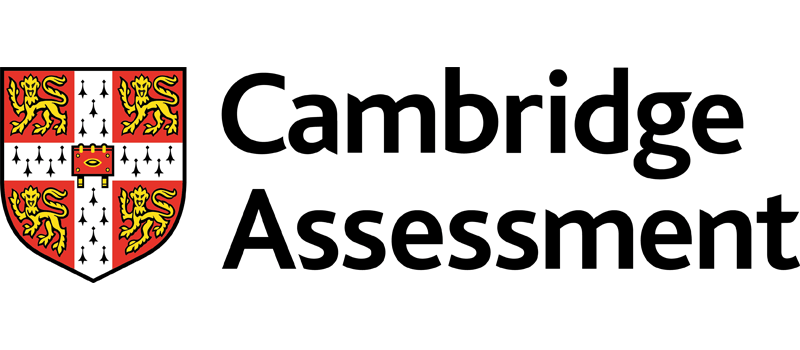
International Financial Reporting Standards (IFRS)
Course ID: 2505267101042EGI
Course Dates : 26/05/25 Course Duration : 5 Studying Day/s Course Location: Dubai, UAE
Language: Bilingual
Course Category: Professional and CPD Training Programs
Course Subcategories: Finance and Accounting Mastery
Course Certified By: * Projacs Academy
* Professional Training and CPD Programs
Certification Will Be Issued From :
KSA
Course Fees: £5,173.31
Vat Not Included in the price. VAT may vary depending on the country where the course or workshop is held.
Click to Pay
Date has passed please contact us Sales@e-s-hub.com
Course Information
Introduction
The International Financial Reporting Standards (IFRS) are a set of globally recognized accounting principles designed to standardize financial reporting across borders. Their adoption is pivotal for organizations seeking to enhance transparency, consistency, and comparability in their financial statements. IFRS has evolved into a cornerstone for financial reporting and is increasingly vital as companies operate in an interconnected global marketplace. Whether a multinational corporation, a small enterprise, or an investor analyzing financial statements, understanding these standards is crucial to ensuring financial statements provide a true and fair view of an organization’s financial position.
Given the rapid globalization of business, companies are required to report financial results that are understandable and comparable across different markets and jurisdictions. The IFRS framework, maintained by the International Accounting Standards Board (IASB), facilitates this standardization by outlining comprehensive and consistent principles for the preparation and presentation of financial statements. With IFRS, businesses and investors alike can make informed decisions based on comparable and reliable financial data.
One of the fundamental advantages of mastering IFRS is the ability to navigate complex accounting situations with precision. As companies expand internationally, they must comply with varying accounting standards across jurisdictions, often leading to confusion and inefficiencies. By mastering IFRS, professionals can ensure that their companies’ financial statements are in alignment with global best practices, improving their standing with stakeholders and regulatory authorities.
However, the transition to IFRS can pose significant challenges, particularly for organizations previously adhering to local accounting principles. The process of converting financial statements to IFRS can be complex, requiring a detailed understanding of both the technical standards and their practical application in different business environments. As such, professionals must be equipped with a deep understanding of the intricacies of IFRS, its adoption process, and the ways it affects financial reporting and decision-making at both the local and international levels.
This course has been specifically designed to address these challenges, offering participants an in-depth exploration of IFRS principles, the critical areas of compliance, and the broader implications for financial reporting. By equipping professionals with the necessary knowledge and tools, this course prepares participants to confidently apply IFRS standards and make sound financial decisions within their respective roles.
Moreover, the financial landscape continues to evolve, with IFRS standards undergoing frequent updates and revisions. The ability to stay current with these changes is vital for professionals who need to remain compliant and effective in an increasingly dynamic environment. This course will provide an in-depth look at the most recent updates to the standards, offering participants insights into how the latest developments impact financial reporting and decision-making.
Objectives
By attending this course, participants will be able to:
Understand the core principles and objectives of IFRS, including the underlying conceptual framework and its application in financial reporting.
Demonstrate the ability to prepare and present financial statements in accordance with IFRS, ensuring transparency and comparability across international markets.
Analyze and apply IFRS to various accounting areas, such as revenue recognition, leases, and financial instruments.
Navigate the challenges of transitioning from local accounting standards to IFRS, including the conversion process and its impact on financial statements.
Keep up to date with recent changes and updates to IFRS and understand their implications for financial reporting.
Interpret and apply IFRS in the context of specific industries, ensuring compliance with both global and local regulatory requirements.
Identify key areas of IFRS that affect management decision-making, including the impact on financial analysis, budgeting, and forecasting.
Who Should Attend?
This course is ideal for:
Financial Managers and Controllers: Those responsible for overseeing financial reporting and ensuring compliance with international accounting standards.
Accountants and Auditors: Professionals seeking to enhance their understanding of IFRS and its practical application in auditing financial statements.
CFOs and Senior Finance Executives: Individuals leading the financial operations of multinational companies who need to manage IFRS adoption and reporting at a strategic level.
Regulatory and Compliance Professionals: Those working in regulatory bodies or organizations requiring up-to-date knowledge of international accounting standards.
Investment Analysts and Advisors: Professionals involved in evaluating or advising on the financial performance of companies, particularly those with international operations.
Finance Consultants and Trainers: Consultants offering advice on financial reporting and those providing training on IFRS adoption.
Training Method
• Pre-assessment
• Live group instruction
• Use of real-world examples, case studies and exercises
• Interactive participation and discussion
• Power point presentation, LCD and flip chart
• Group activities and tests
• Each participant receives a 7” Tablet containing a copy of the presentation, slides and handouts
• Post-assessment
Program Support
This program is supported by:
* Interactive discussions
* Role-play
* Case studies and highlight the techniques available to the participants.
Daily Agenda
The course agenda will be as follows:
• Technical Session 08.30-10.00 am
• Coffee Break 10.00-10.15 am
• Technical Session 10.15-12.15 noon
• Coffee Break 12.15-12.45 pm
• Technical Session 12.45-02.30 pm
• Course Ends 02.30 pm
Course Outlines
Introduction to IFRS and the Conceptual Framework
Overview of IFRS: History, Importance, and Global Adoption
The Conceptual Framework of IFRS: Principles and Underlying Assumptions
Structure and Application of IFRS Standards: Key Components
Overview of Financial Statements and their Elements: Balance Sheet, Income Statement, and Cash Flow Statement
Day 2:
Core IFRS Standards – Part 1
IFRS 15: Revenue from Contracts with Customers
IFRS 9: Financial Instruments – Classification, Recognition, and Measurement
IFRS 16: Leases – Definition, Classification, and Reporting
IFRS 10: Consolidated Financial Statements – Control and Consolidation Principles
Day 3:
Core IFRS Standards – Part 2
IFRS 13: Fair Value Measurement and Disclosures
IFRS 7: Financial Instruments: Disclosures
IFRS 2: Share-based Payments – Accounting for Equity-settled and Cash-settled Share-based Payments
IFRS 8: Operating Segments – Identification and Reporting
Day 4:
Transitioning to IFRS and Practical Applications
The IFRS Conversion Process: Key Steps and Considerations
Addressing Challenges in Transitioning from Local GAAP to IFRS
Industry-specific Applications of IFRS: Case Studies
Practical Exercises: Preparing Financial Statements under IFRS
Day 5:
IFRS Updates and Emerging Issues
Recent IFRS Updates and Amendments: Key Changes and Implications
Emerging Issues in IFRS: Sustainability Reporting and IFRS for SMEs
Compliance Considerations and Audit Challenges in IFRS Reporting
Final Review and Application: Group Discussions, Q&A, and Case Studies



















































